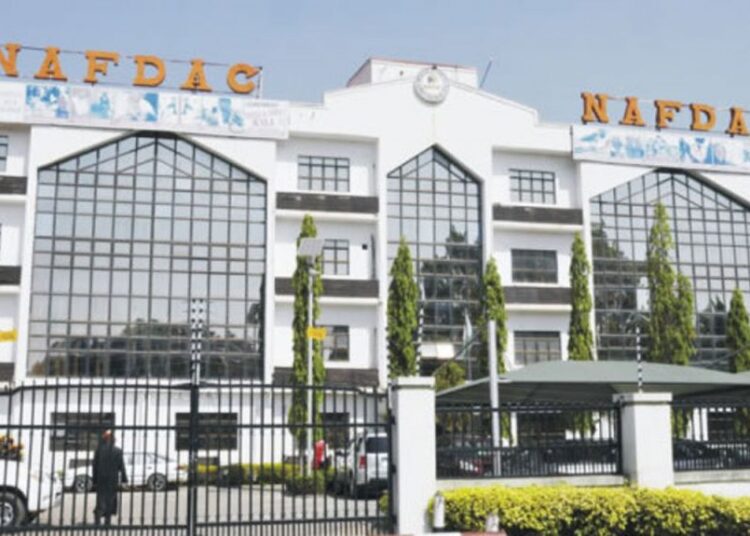Abuja, July 4, 2023: The National Agency for Food and Drug Administration and Control (NAFDAC), has said that its scientific analysis of Semovita content did not reveal any plastic material.
A statement signed by the agency’s Director-General (D-G), Prof Mojisola Adeyeye, and issued to newsmen in Abuja on Monday revealed the position.
Adeyeye said that NAFDAC’s post-marketing analysis was as a result of the claim by a woman in a video on the social media that she was washing Semovita plastic content.
According to the D-G, the woman claimed that the residue she got after sieving the Semovita content was plastic.
Adeyeye added that the post-marketing analysis also followed a viral video circulated in 2020 showing a similar situation at a community in the country.
The D-G said that upon receiving all the alerts from various quarters, she gave a directive to conduct emergency post-marketing analysis using different brands of Semovita.
According to her, the agency investigated this claim by conducting appropriate analytical testing in its internationally-accredited laboratories.
She said that the results showed that there was no plastic or any similar harmful contaminants in Golden Penny Semovita, and that it contained the expected components plus the required Vitamin A.
“NAFDAC therefore wishes to inform the general public that the claim in the social media video assertions is misleading.
“The alleged Golden Penny Semovita is a brand of Semolina, a very popular flour made from wheat and consumed in several parts of the world.
“Semolina contains mainly water, carbohydrates and about 13 per cent of gluten-forming proteins.
“Gluten is made up of two classes of proteins – glutenin and gliadin, which upon addition to water combines to form gluten, a protein that gives nutritive value and imparts other characteristic properties to the product.
“Glutenin normally gives a bread though the ability to rise during baking while gliadin gives it the viscous and elastic (viscoelastic) properties, or it simply makes it extensible and elastic.
“This latter property is the rubbery/plastic-like appearance that was exhibited in the said video, Semovita has no plastic content in it,” she stressed.
She said that the content only exhibits viscous and elastic properties, and that the rubbery-like material that was observed in the video after many washings with water is the gluten that formed after the gluten-forming proteins get mixed with water.
She said that Golden Penny Semovita is manufactured by Flour Mills of Nigeria Plc., a registered company which has been granted marketing authorization by NAFDAC to manufacture the product and offer for sale in Nigeria.
According to her, the company’s operations were certified by NAFDAC after meeting the requirements of Good Manufacturing Practice (GMP) and the relevant Nigerian Industrial Standards (NIS).
She said that NAFDAC wishes to reassure the public that Golden Penny Semovita and indeed all other Semolina products registered by the agency are safe for human consumption having been approved by the agency.
She said that the approved product had all followed science-driven regulatory diligence of the agency, and that there is no cause for apprehension by consumers as such approved products are manufactured in line with GMP.
Adeyeye said that the products had also complied with the Nigerian Industrial Standards, which had continuously being monitored by NAFDAC.
She therefore implored members of the public to exercise discretion in the use of social media to address any suspicion they may have on regulated products.
She stated that social media has the tendency to cause fear and panic, urging the public to contact the nearest NAFDAC office if they observed a similar situation.
Adeyeye urged the public to contact NAFDAC, via online channels at reforms@nafdac.gov.ng Or Call: 0800-1-NAFDAC (0800-1-623322) for immediate response.












